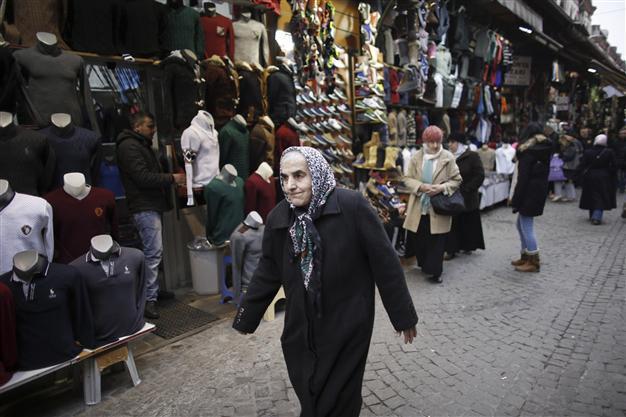Turkish consumer morale hits four-year low
ISTANBUL

REUTERS Photo
Turkish consumer morale has hit a four-year low in February, as rising political concerns and tighter monetary policies have begun to influence expectations.The Consumer Confidence Index has dropped to 69.2, a 4.3 percent decrease from the previous month, according to results from the Consumer Tendency Survey, which was prepared by the Turkish Statistical Institute (TÜİK) and the Turkish Central Bank.
The index fell below the 70 threshold for the first time since February 2010 and after coming in at 72.4 in January.
“The direct influence of the domestic political risks, high policy interest rates and weaker, more volatile foreign exchange rates on the real economy is much clearer now,” said Timothy Ash, head of emerging markets research at Standard Bank.
He said the domestic demand will slow down and that this would lead to rebalancing the economy, as well as moderate levels in the current account deficit, adding that the real question was the speed of the slowdown and to what extent it would curb overall growth.
The index is evaluated between a range of 0 and 200; a rating of 100 and above indicates an optimistic outlook, while a rating below 100 is deemed pessimistic.
According to the survey results, the rate of Turkish consumers who believe their probability of saving within the next year fell by 15.8 percent, compared to the previous month at 22.
The index of the general economic situation expectation in the next 12 months, which was 94 in January, also decreased by 3.9 percent to 90.4 in February, indicating more consumers have lost faith in the course of economic development in Turkey.
Consumers’ unemployment levels and financial situation expectations have also dropped over the month, recording a 2.8 and 2.7 percent decline, respectively.
After enjoying years of high growth, the Turkish economy is going through tough times after internal and external blows dramatically changed risk perceptions in the country.
The first shock to markets was the U.S. Federal Reserve’s decision to tighten monetary policies, which drove the Turkish Lira and the stock market to lower levels.
This crisis of confidence apparently deepened after the Dec. 17, 2013, graft operations that ignited a vast political crisis that shows no signs of being brought under control.
Moreover, steep hikes at the beginning of 2014 and limitations on credit cards, loans and installment payments on a number of products have caused consumers’ economic views to become even darker.
















